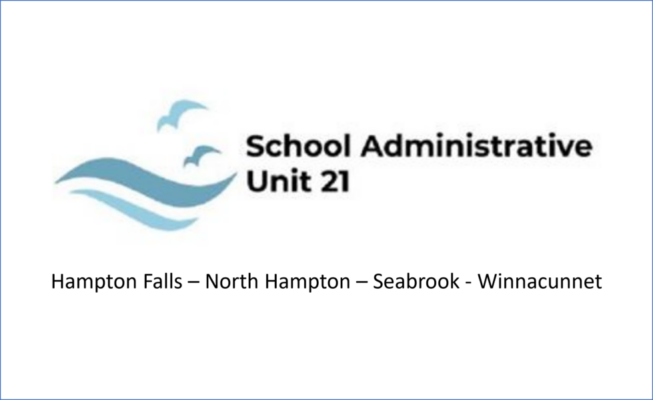In SAU21, we spend $30,000.00/student. We should expect better for the students who attend public schools in NH.
Dear SAU21 Joint Board Members,
Since I was unable to complete my statement during the Joint Board meeting, I’m going to highlight some of the concerns I had after reviewing the “Portrait of a Learner.” I appreciate your service to the community and your thoughtful consideration.
I have to admit that I was surprised that no one asked any challenging questions or offered a thoughtful, critical analysis after the presentation. I felt that this was a good opportunity to engage in a back-and-forth in order to make sure this framework is the best it can be. It was mentioned that it took about a year to develop this framework, but as a taxpayer and resident, I believe your role is to make sure that you are engaging in a conversation that seeks to improve what has been presented.
As I began reading the document, I felt it needed further explanation and some changes to make it better. I do understand that there are working documents that will follow and that may address some of these questions and concerns. But I would have expected at least some of you to ask more detailed questions and offer suggestions to improve the framework.
Core Theme #1 Academics
1) What does Equity mean? This has become a buzzword that should be defined in order for the community to understand exactly what this means for students. Why not Equality?
2) Support Structures for all students? How would support structures look for students with IEP’s, 504 plans, gifted students, etc. Are adequate support structures in place now?
3) Rigor? What does this mean in terms of Common Core & the Next Generation Science Standards that have been considered the “bottom?” Rigor can demoralize a child but it can also offer a challenge to students who need it.
4) Personalized Pathways. What does this mean for each child? We know some students have Individualized Education Plans, but what does this mean for the average student? At what age is a child able to determine what pathway they will take? How do you personalize an education for all children in the classroom? What does this mean for the teacher? Is this a tracking system? If so, how does the student move to a different track if they want to change their pathway?
5) Literacy in the core academic subjects is not listed
Core Theme #2 Mindset Descriptors
1) Demonstrating Traits ? What does it mean to demonstrate traits ? What are the traits, and who determines the proper traits to demonstrate?
2) How do you teach resilience? Can that also create problems? Stress? Ect.
3) What about honesty? Integrity? Why were these not included?
4) What does Self Direction look like in the classroom ? What is the role of the teacher ? Is this a shift to Constructivist teaching methods? Where are the peer-reviewed and independent studies on this pedagogy as it applies to math/science, etc?
Core Theme #3 Essential Life Skills
1) What about literacy in the core subjects? Math, Science, Language Arts, History, Civics?
Core Theme #4
1) This area is focused on a child’s mental health. Mental health assessments or treatment should be handled by a Phd Child Psychologist who is licensed, and follows the APA Code of Ethics. Mental health assessments or treatment must be done with informed consent by parents per ESSA. Parents must know if their child’s mental health PII is secure, and can only be accessible through informed consent by the student/parent/guardian. (Exception, court order)
Theme #5 Community Engagement
1) Civic engagement. What does this look like? Civics literacy is at an all time low. Why is Civics literacy not listed? What about the importance of Civic Virtue? ..or Civic Responsibility? Students are engaging more than ever, but engagement does not equal literacy. Civics should prioritize academic knowledge first.
Global citizenship? What about U.S. Citizenship? Why is Global Citizenship included but not US Citizenship? Can the students answer basic questions about the major principles and structures of our own government?
Problems with Portrait of a Learner: Portrait of a Learner leaves out academic excellence as a priority for the student. Literacy is never mentioned. Proficiency in the core subjects is also not included.
There is nothing about parents, and their role. There is nothing about the importance of securing student privacy from outside organizations/individuals/ or vendors.
Only one board member abstained from voting for this framework. While I do appreciate the effort by those involved in preparing the framework, I believe this could be better. New Hampshire public schools are seeing a decrease in enrollment while families look for alternative schools to educate their children. We need to do better for the students in SAU21.
Ann Marie Banfield
